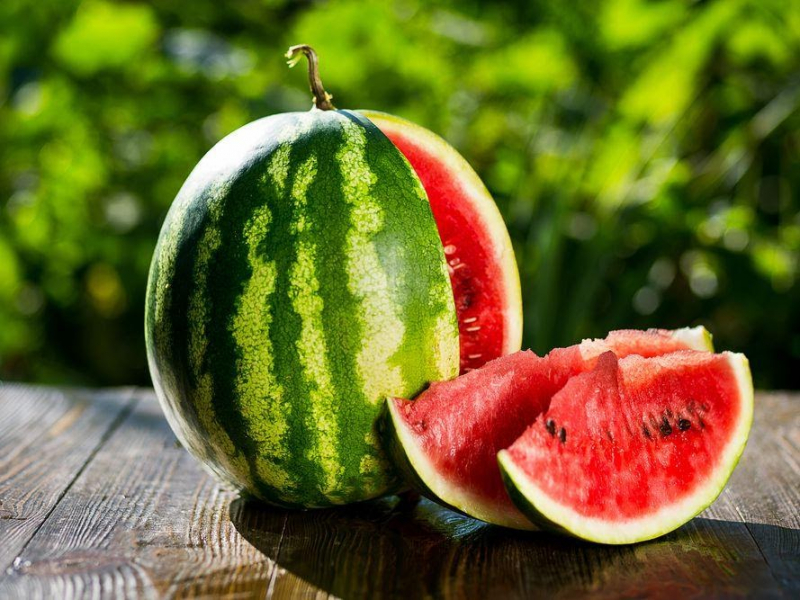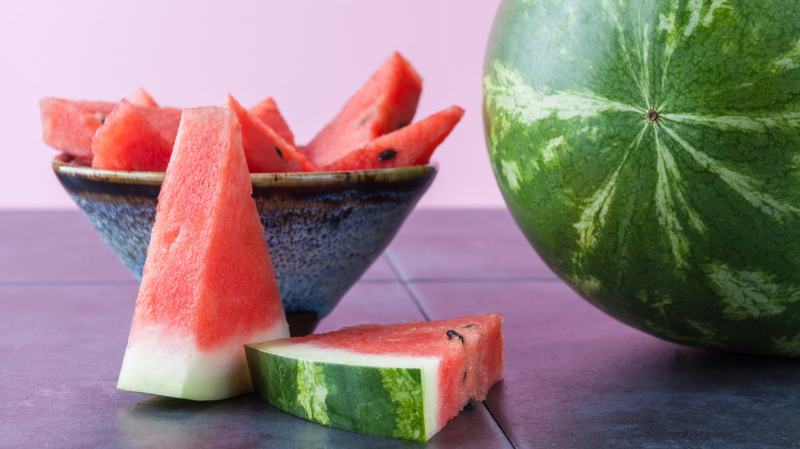Watermelon
Watermelon (Citrullus lanatus) is a flowering plant species of the Cucurbitaceae family and the name of its edible fruit. A scrambling and trailing vine-like plant, it is a highly cultivated fruit worldwide, with more than 1,000 varieties. The closest relatives and potential ancestors of modern, cultivated watermelons are the Sudanese Kordofan melons. In Uan Muhuggiag, an ancient site in Libya that dates to around 3500 BC, wild watermelon seeds were discovered. Although they were not the delicious modern kind, watermelons were domesticated in north-east Africa and were being grown in Egypt by the year 2000 BC. During the Roman era, sweet dessert watermelons spread throughout the Mediterranean region.
For its enormous edible fruit, which is a berry with a hard rind and no internal divisions, watermelon is produced inhospitable conditions from tropical to temperate regions all over the world. This fruit is known botanically as a pepo. Although there are kinds without seeds, the sweet, juicy flesh is typically deep crimson to pink and contains many black seeds. it is 91% water, contains 6% sugar, and is low in fat. The fruit can be consumed fresh, pickled, or cooked, and the rind can also be consumed. Additionally, it can be drunk as juice or a component of mixed drinks.












